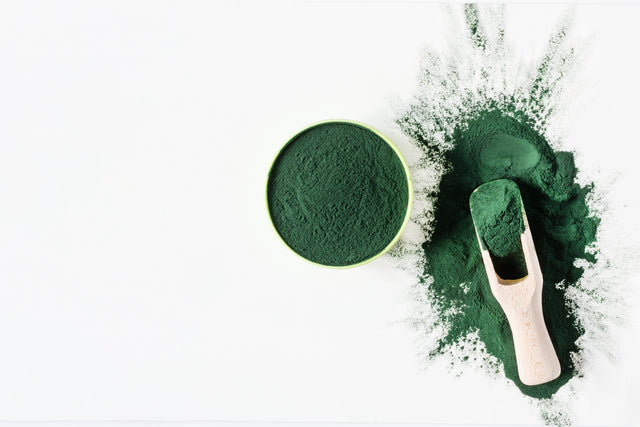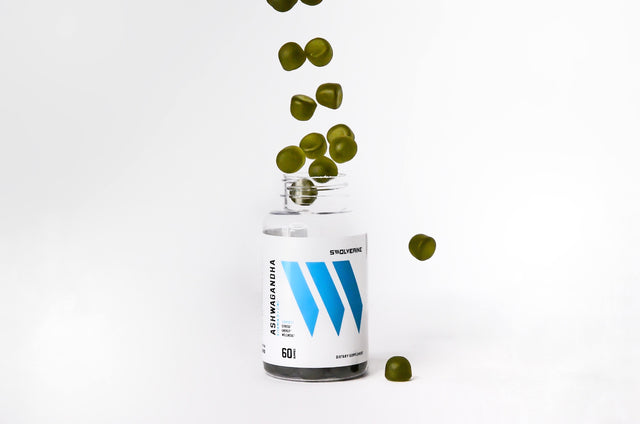Depending on your training program and exercise modality, your body will utilize energy differently. Consider how you feel when you’re running at a steady state around the track as compared to performing sprint intervals. Maintaining a steady state pace while you run compared to sprinting where you are left gasping for breath, is really the difference between aerobic vs. anaerobic training.
Aerobic Vs. Anaerobic Training
Aerobic Training Benefits
Your body utilizes energy in two distinct ways; aerobic vs anaerobic. Aerobic, means with oxygen, therefore while you’re training in an aerobic state, your body has a sufficient amount of oxygen to provide the energy which is necessary to sustain an exercise for a prolonged period of time, without tapping into other energy reserves.
Any low to moderate steady-state exercise is considered aerobic. Steady-state exercise can be things like walking, running, cycling, and even climbing stairs.
The aerobic pathway produces a significant amount of energy and utilizes all three macronutrients: carbohydrates, fats, and protein for fuel.
When the oxygen supply can’t simply keep up with your body’s energy demands, different energy supplies will be utilized, thus transitioning into an anaerobic state.
Anaerobic Training Benefits
The anaerobic pathway of energy metabolism is the creation of energy without oxygen. This typically takes place when an activity is performed at a high enough intensity, that your body can’t provide the necessary oxygen to keep up with energy demands alone.
Without oxygen, the body relies upon adenosine triphosphate (ATP) and glucose or glycogen in the muscle cells for energy, comprising what’s called the phosphagen (immediate) energy system and glycolytic pathway to produce energy in limited quantities.
Creatine can significantly increase phosphorylcreatine intramuscular stores. It has been shown to improve the energy supply from the phosphagen systems, thereby increasing the maximum capacity to resynthesize adenosine triphosphate (ATP) by non-oxidative pathways, leading to improved performance, strength, and power [R].
RELATED ARTICLE The Definitive Guide To Kre-Alkalyn Creatine
When exercise intensity increases the glycolytic system is in full force, and the mitochondria are trying to keep up with the amount of pyruvate that is being produced. This process leads to the conversion of pyruvate to lactate (lactic acid), which can take anywhere from 10-90 seconds depending upon workout intensity, producing a significant number of H+ (hydrogen ions) which are expelled into the bloodstream. When you’ve reached this type of exercise intensity, your body can’t keep up for long.
This is where buffering lactic acid, can help improve your training performance and workout volume. Well, in fact, your body has a natural buffering system, including sodium bicarbonate, phosphate, and carnosine. This is where Carnosyn® Beta-Alanine powder supplements can help provide performance improvements during high-intensity training.
RELATED ARTICLE How To Prevent Lactic Acid Build-Up In Your Muscles
Aerobic Vs. Anaerobic Training: Which Exercise Is Better
Obviously, aerobic vs. anaerobic exercise is going to utilize different training modalities. Aerobic exercise involves steady-state cardio, keeping your heart rate up, such as cycling, running, swimming, and even dancing. Aerobic exercise will enhance your ability to burn more body fat since aerobic pathways rely on macronutrients for fuel, and you still have oxygen in your muscle tissue. This can also improve your VO2 max which refers to the maximum amount of oxygen that you can utilize during exercise. Better oxygen transport will strengthen your cardiovascular system, efficiently pumping more blood from your heart and veins to your muscle tissue.
RELATED ARTICLE Why is VO2 Max Important For Athletes
The benefit of anaerobic training, like HIIT or HIFT, is that it will burn more calories since you’re training at an increased level of intensity for a shorter period of time. High-intensity training programs will also improve strength, and power, and increase lean muscle mass as compared to aerobic training. Having an optimal mix of both aerobic and anaerobic training will help you burn more calories, improve functional strength, and improve training adaptations. By utilizing both styles of training, you’ll get the muscle-building effects, power, and strength, with anaerobic exercise, while improving endurance and burning more body fat when aerobic.
Aerobic Vs. Anaerobic Training: Takeaway
Different training styles will require different energy systems. The real difference between aerobic vs. anaerobic training is the fact that one type of pathway utilizes oxygen while the other does not. When your training becomes anaerobic, you rely on secondary and tertiary energy systems, phosphagen, as well as the glycolytic system to produce immediate energy to power your lifts. Supplements such as Kre-Alklayn Creatine, Beta-alanine, and Citrulline Malate can help improve immediate energy supplies for fast twitch muscle fibers to perform more powerful lifts, buffer lactic acid, and enhance the phosphagen system. Food of course is your primary fuel source and should be optimized to improve your performance and training.
Want to maximize your performance and energy to get better results?
Swolverine's Kre-Alkalyn® is a patented pH correct form of creatine phosphate. With the addition of creatine phosphate (PCr) into the muscle cells, the body increases its immediate energy supply, by facilitating the production of ATP which increases power output and strength. High-intensity training programs require the body to go under strenuous aerobic and anaerobic conditions. By supplementing the body with creatine, you will induce a greater improvement in exercise endurance and athletic performance, resulting in improved times, more peak power, and stronger lifts.*
SWOLVERINE IS AN ENDURANCE ATHLETE AND ACTIVE LIFESTYLE BRAND. MADE FOR THE ELITE ATHLETE, AND THE STRONG-WILLED OUR PRODUCTS WERE DESIGNED TO FUEL YOUR ATHLETIC PERFORMANCE. WE PERFORM WHEN YOU PERFORM.
We believe that everyone can optimize not only their athletic performance but their human potential. The way we believe we can optimize performance is through transparency, clinically effective doses, and clinically proven ingredients with evidence-based outcomes. We provide the nutrients you need to power your active lifestyle.
References
John Barardi, Ryan Andrews, Brian St. Pierre, Krista SCott Dixon, Helen Kollias, Camille DePutter. The Essentials Of Sports and Exercise Nutrition. Precision Nutrition, 2018.
de Poli, Rodrigo de Araujo Bonetti et al. “Creatine Supplementation Improves Phosphagen Energy Pathway During Supramaximal Effort, but Does Not Improve Anaerobic Capacity or Performance.” Frontiers in physiology vol. 10 352. 10 Apr. 2019, doi:10.3389/fphys.2019.00352













